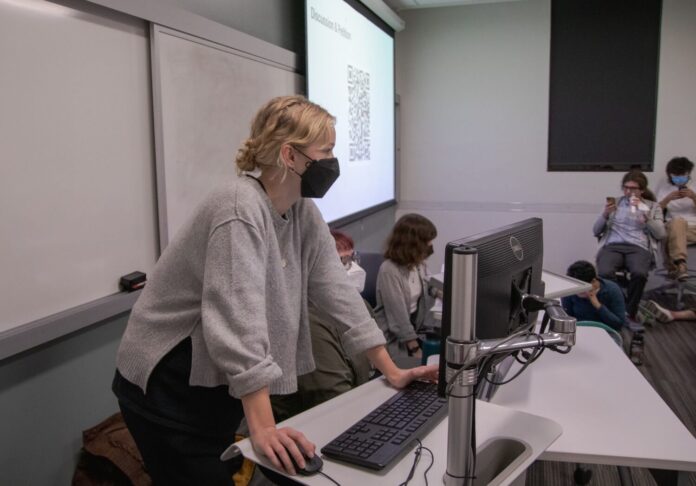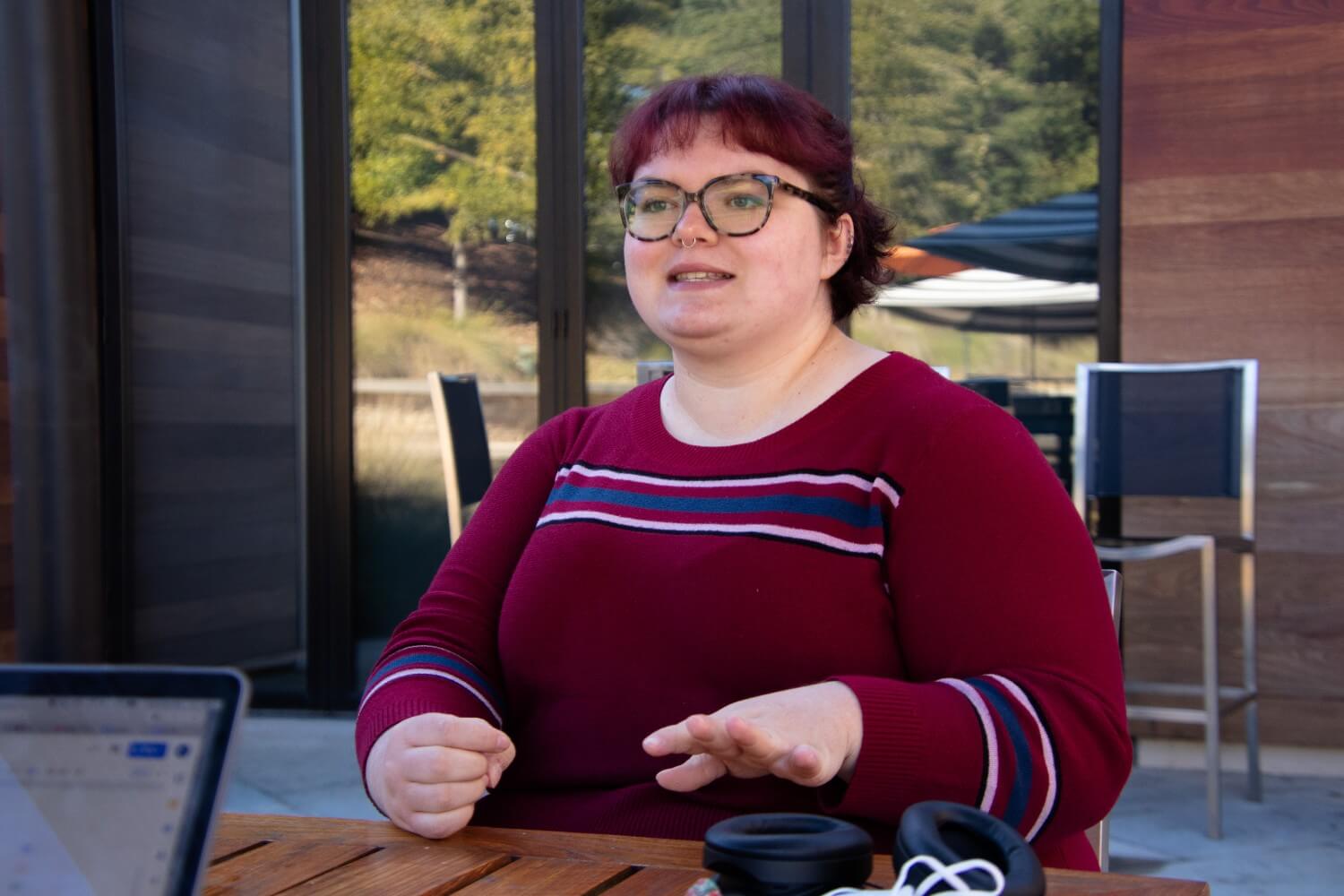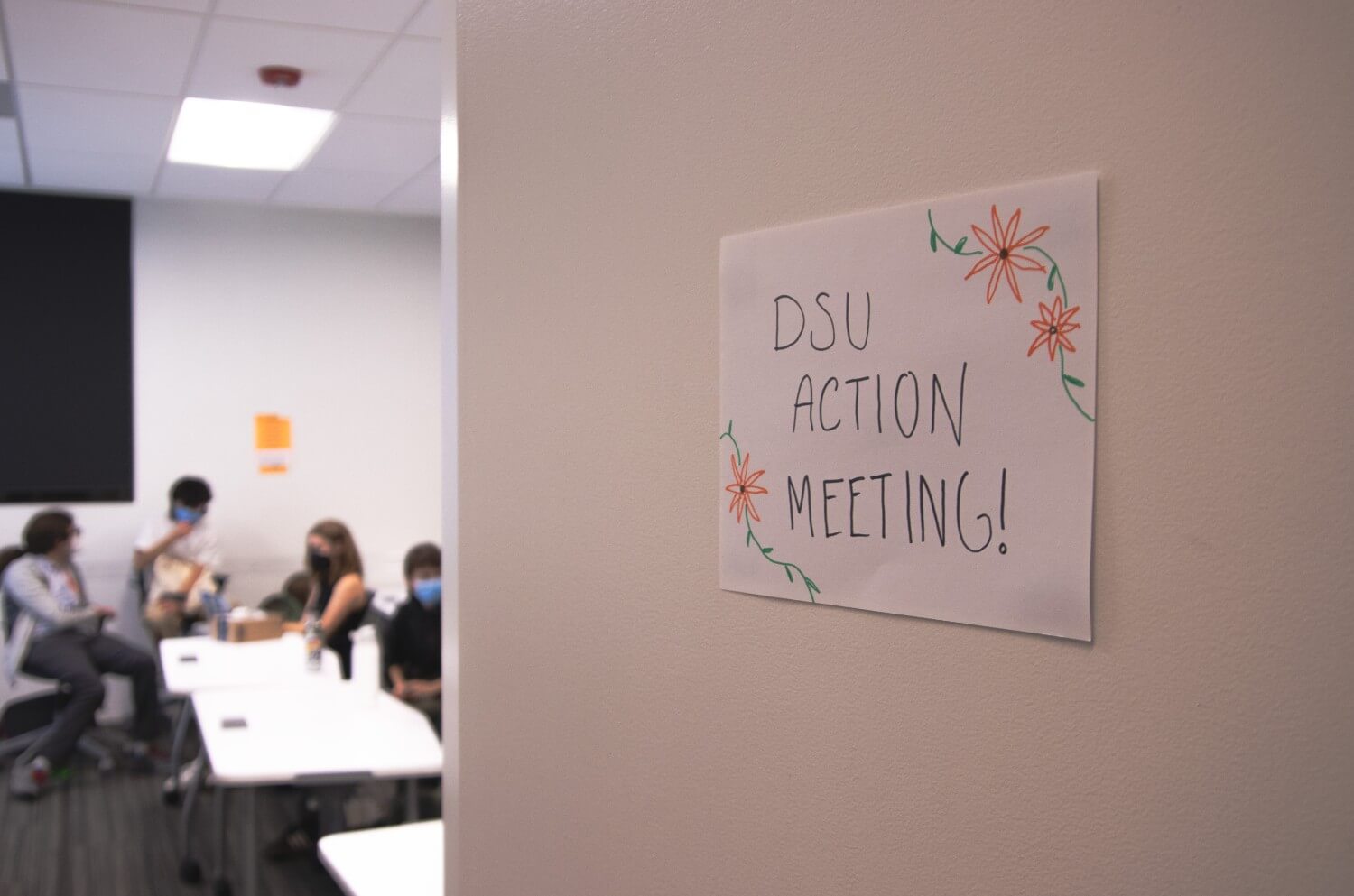
Five days before the Spring 2023 semester began, students with note-taking accommodations received an email from Disability Services informing them that the college would be replacing peer note-takers with an online note-taking software called Glean. According to the Jan. 18 email, the program allows students to record their classes and produces a transcript that they can highlight and mark for review.
Mariam Ashchyan, interim director of Disability Services, said Glean will increase student agency and independence in the classroom, strengthen the quality and accuracy of the notes and address issues that arise when peer note-takers cannot be found.
“Many institutions have already been using Glean (or similar note-taking technologies) with extremely effective results,” Ashchyan said via email.
However, some students, including Disabled Student Union (DSU) founder Paulina Kerrigan (senior) and DSU president Elsa Marsh (junior), have said they are deeply dissatisfied with the program.
“It’s not an equivalent service at all,” Kerrigan said.

Prior to the Jan. 18 email, students were unaware that Occidental was considering replacing the peer note-taking program, according to Marsh. Neither DSU nor students with the note-taking accommodation were contacted by Disability Services about the change, she said.
According to Ashchyan, although students were not consulted, a group of faculty and staff reviewed the software at length before making the decision.
“This group was diligent in researching the tool before bringing Glean to our students,” Ashchyan said via email. “In fact, Glean has undergone a far more rigorous review by campus constituents than any other assistive technologies used by students through Disability Services.”
Ashchyan said one of Disability Services’ reasons for implementing Glean is the difficulty in finding peer note-takers. Disability Services was unable to find peer note-takers for approximately 16 percent of courses last year, she said.
Sam Lerman-Hahn (senior) said Disability Services has previously taken weeks to provide them with peer note-takers. However, they said the office usually does eventually find one.
Despite these occasional difficulties locating peer note-takers, Marsh said DSU did not receive complaints from students about the program or any inclination that students desired an alternative system.
“It didn’t happen often enough for anyone to think that they were going to change the program,” Kerrigan said.
According to Kerrigan, many students with note-taking accommodations have been working with peer note-takers long before coming to Occidental. Because the system is used across educational levels and institutions, students are accustomed to the potential issues, she said. Kerrigan also said Disability Services was thorough in emailing professors and students until a peer note-taker was found.
“When there is no note-taker, it’s usually understood that everything was done that could be done,” Kerrigan said.
In her email, Ashchyan said Disability Services hopes to increase the quality and accuracy of the notes produced through the implementation of Glean. Moreover, she said digitizing the program would resolve the lag that could occur between classes and the time when peer note-takers uploaded their notes, which could come later than when students needed to access them for an assignment or exam. Previously, note-takers uploaded notes only once a week or sometimes even more sporadically, Ashchyan said. Glean minimizes that time by transcribing audio recordings in 10 to 30 minutes.
But Glean poses its own challenges in regards to accuracy and processing time, Marsh and Kerrigan said. Marsh said DSU has received feedback from students outlining issues with the quality of the transcript Glean produces. Hannah Dar (first year) compared it to speech-to-text on Google Docs and Lerman-Hahn said the accuracy is similar to that of the Voice Memos app on an iPhone.
“It’s not passable for a class discussion,” Lerman-Hahn said.
Besides quality issues, the program also introduces time concerns, Marsh said. For example, it requires students to dedicate significant additional time outside of class and the assigned workload to read through the recordings for important information. Lerman-Hahn said that if students chose to use Glean, they are essentially attending each of their classes twice.
Marsh said that even without the added effort Glean requires, attending class and completing assignments takes longer for students with disabilities — something that accommodations is supposed to alleviate.
“The thing about disability is that everything takes five more steps,” Dar said. “They weren’t aware of it, [but Glean] added an extra step for disabled people.”
According to Ashchyan, another important motive for the transition to Glean is increasing student independence and agency in the classroom.
“It allows many of our students to be independent, by using the audio recording and transcription feature to get access to the material in the classroom,” Ashchyan said via email.
Lerman-Hanh, Dar, Marsh and Kerrigan all said they took issue with this claim.
“I already had agency. I knew what I needed. And I asked for it,” Lerman-Hahn said.
Students who are accustomed to working with peer note-takers are looking at restructuring their entire study routines, according to Kerrigan. For Kerrigan and Dar — both of whom have chosen not to use Glean — the added stress of needing to get down every important point has made them less present in the classroom and less active in discussions.
“It used to be in the back of my mind, I was like, ‘Oh I have a note taker. It’s okay if I miss something.’ But now I’m like, ‘I gotta get everything all of the time,’” Kerrigan said.
According to Marsh, issues could arise when professors are not comfortable with their class being recorded. The implementation of Glean has created a situation where students’ accommodations depend on professors’ willingness to be recorded, she said.
These and other concerns have driven students to set up meetings with Ashchyan, as well as the DSU e-board, according to Marsh. In some cases, the meetings have led to the reinstatement of peer note-takers for specific classes. Lerman-Hahn said they received a peer note-taker for their French class, as Glean does not have the capacity to transcribe languages besides English. Dar also met with Ashchyan and, after expressing her concerns, was regranted her peer note-taking accommodation. However, Dar said she is dissatisfied by Disability Services’ case-by-case approach.
“I don’t think it’s fair [that] because I can express how this doesn’t work for me, that I am the only one who gets it back,” she said.
Over the past two weeks, DSU has been organizing to address students’ concerns about Glean. According to Marsh, she and other e-board members have sent out surveys to gather student feedback, held an action meeting and wrote a petition to share with Disability Services. In the meantime, members of the campus community have expressed interest in supplying notes, Marsh and Dar said. Dar said she has been getting notes from friends and that other students have offered to share their notes after she spoke to them about Glean.

In the future, the four students said they hope to see the reinstatement of peer note-takers.
“I think, for me, at least the issue isn’t so much that Glean exists,” Kerrigan said. “It’s literally just that they replaced note-takers and they didn’t give it as an option. Because I feel like the concerns that they’re trying to address with Glean don’t cancel out anything that note takers would have been able to do.”
Contact Claire O’Callahan at ocallahan@oxy.edu
![]()






























